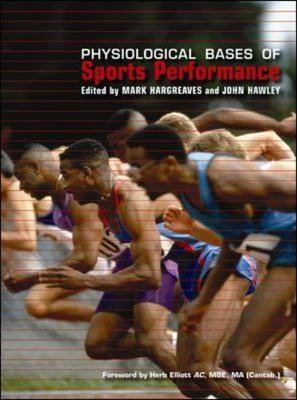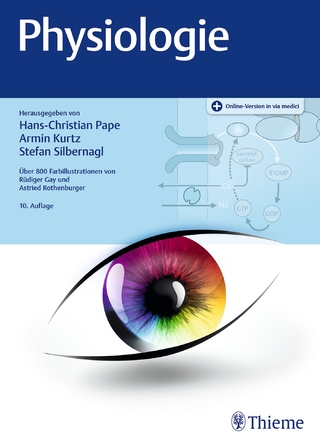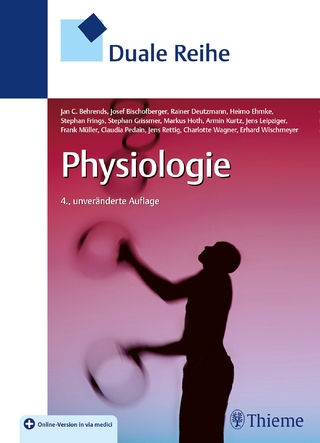
Physiological Bases of Sport Performance
McGraw-Hill Publishing Co. (Verlag)
978-0-07-471101-9 (ISBN)
- Titel ist leider vergriffen;
keine Neuauflage - Artikel merken
Physiological Bases of Sports Performance takes an in-depth look at how the body responds to high physical activity in exercise and sport, and on how to enhance performance through a variety of physiological techniques, such as training, nutrition and cryogenic aids. The book covers the basic elements of physiology and explains the effects of sport on those areas. The second section on improving sport performance provides a practical angle that will be useful for sports coaches and athletes.Key Features:·Provides the basics of physiology in context of athletes and people performing high physical activity·Practical and academic information for students, sports people and sports medicine practitioners·Covers a cross section of different methods of enhancing performance·Draws on an international selection of contributors at the forefront of their respective fields.
Mark Hargreaves, is Professor of Exercise Physiology and Head, School of Health Sciences at Deakin University, Melbourne, Australia. He has published extensively in the area of exercise physiology and metabolism. John Hawley is Professor of Exercise Metabolism at RMIT University, Melbourne, Australia. His research has focused on the physiological and metabolic responses to exercise and the determinants of sports performance.
ForewordIntroduction
Fundamental principles of sports performance
Performance power output/speed
PART 1 EXERCISE AND SPORTS PHYSIOLOGY
Chapter 1 Skeletal muscle
Introduction
Function and structure of skeletal muscle
Muscle force and power
Classification of muscle fibre types
Motor unit recruitment
Fibre type and performance
The influence of training on skeletal muscle
Summary
Chapter 2 Exercise metabolism: fuels for sport
Metabolism during high-intensity exercise
Metabolism during endurance exercise
Factors influencing exercise metabolism
Summary
Chapter 3 Oxygen transport system
Respiratory response to exercise
Cardiovascular responses to exercise
Maximal oxygen uptake
Summary
Chapter 4 Thermoregulation and fluid balance
Introduction
Temperature regulation in exercise
Sweating: water and electrolyte losses
Sweat loss: effects on exercise performance
Control of water and electrolyte balance
Fluid intake: thirst
Fluid and electrolyte replacement during exercise
Pre-exercise hydration
Post-exercise rehydration
Chapter 5 Mechanisms of fatigue
Introduction
Definitions and manifestations of fatigue
Existence of both central and peripheral fatigue
Impaired muscle membrane excitability and ionic disturbances
Failure of excitation-contraction coupling (ECC) in fatigue
Metabolism is intricately involved in muscle fatigue
Conclusion
Chapter 6 Overtraining
Introduction
The overtraining syndrome
Training and recovery to avoid overtraining
Types of overtraining
Diagnosis of overtraining
Can recovery be accelerated?
Treatment of overtraining
Final considerations
PART 2 FACTORS INFLUENCING SPORTS PERFORMANCE
Chapter 7 Training for enhancement of sport performance
Introduction and historical development of training practices
The objectives of physical training
The scientific principles of training
The training stimulus and the training response
Classification of different sport activities
Current training practices of athletes
Planning a training program
Constructing a training program: the periodisation of training
Evaluation of training methods
Chapter 8 Nutrition for training and competition
Introduction
Energy needs of the athlete
Achieving optimal physique
Meeting requirements for protein and micronutrients
Acute nutrition strategies for competition
Fuelling up before an event
The pre-event meal
Fluid and CHO during the event
Post-exercise recovery
Summary
Chapter 9 Sports supplements and sports foods
Introduction
Sports foods and supplements
Balancing the use of sports foods and supplements
A system for managing the use of supplement and sports foods by athletes
Valuable sports foods and supplements
Summary
Chapter 10 Exercise in the heat
Introduction
Cardiovascular alterations during exercise and heat stress: new perspectives
Metabolic alterations during exercise and heat stress
Limits to exercise performance in the heat
Preparation for exercise in the heat
What is the best nutritional preparation for exercise in a hot environment?
Summary
Chapter 11 Exercise at altitude: physiological responses and limitations
Introduction
The high altitude environment
Physiological responses to altitude
Performance
Conclusion
Chapter 12 Gender differences in sport
Introduction
Morphological differences
Cardiovascular differences
Muscle morphology and histology
Metabolism and substrate use
Muscle fatigue and endurance
Exercising when oestrogens are high: an advantage?
Could women outperform men?
Conclusion
Index
| Erscheint lt. Verlag | 16.5.2003 |
|---|---|
| Zusatzinfo | 15 illustrations |
| Verlagsort | London |
| Sprache | englisch |
| Maße | 70 x 94 mm |
| Gewicht | 1 g |
| Themenwelt | Medizin / Pharmazie ► Medizinische Fachgebiete ► Sportmedizin |
| Studium ► 1. Studienabschnitt (Vorklinik) ► Physiologie | |
| ISBN-10 | 0-07-471101-6 / 0074711016 |
| ISBN-13 | 978-0-07-471101-9 / 9780074711019 |
| Zustand | Neuware |
| Informationen gemäß Produktsicherheitsverordnung (GPSR) | |
| Haben Sie eine Frage zum Produkt? |
aus dem Bereich


